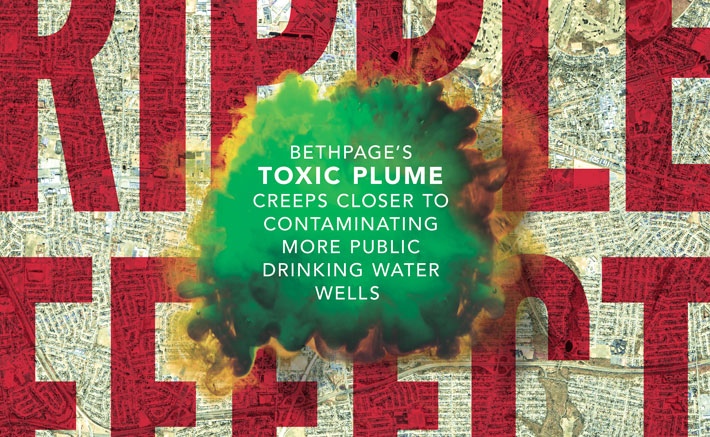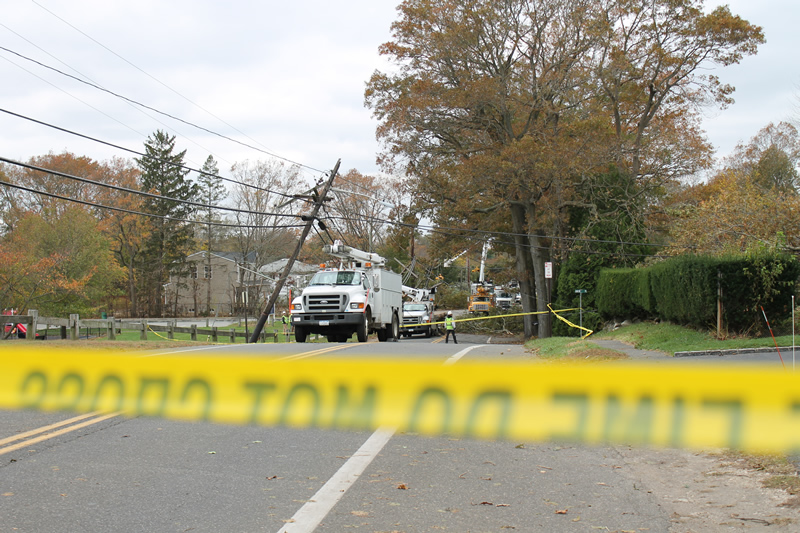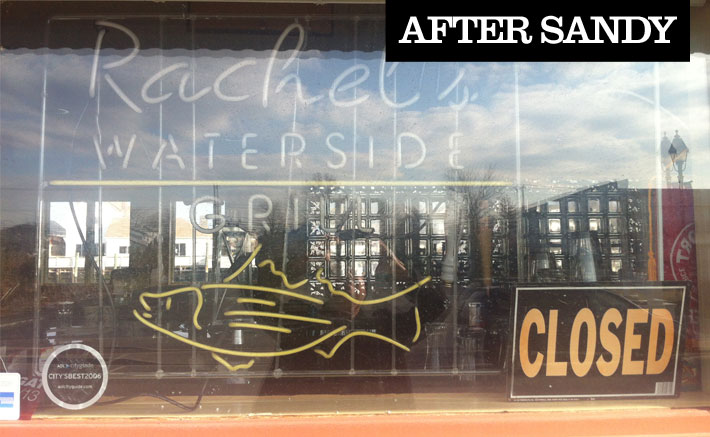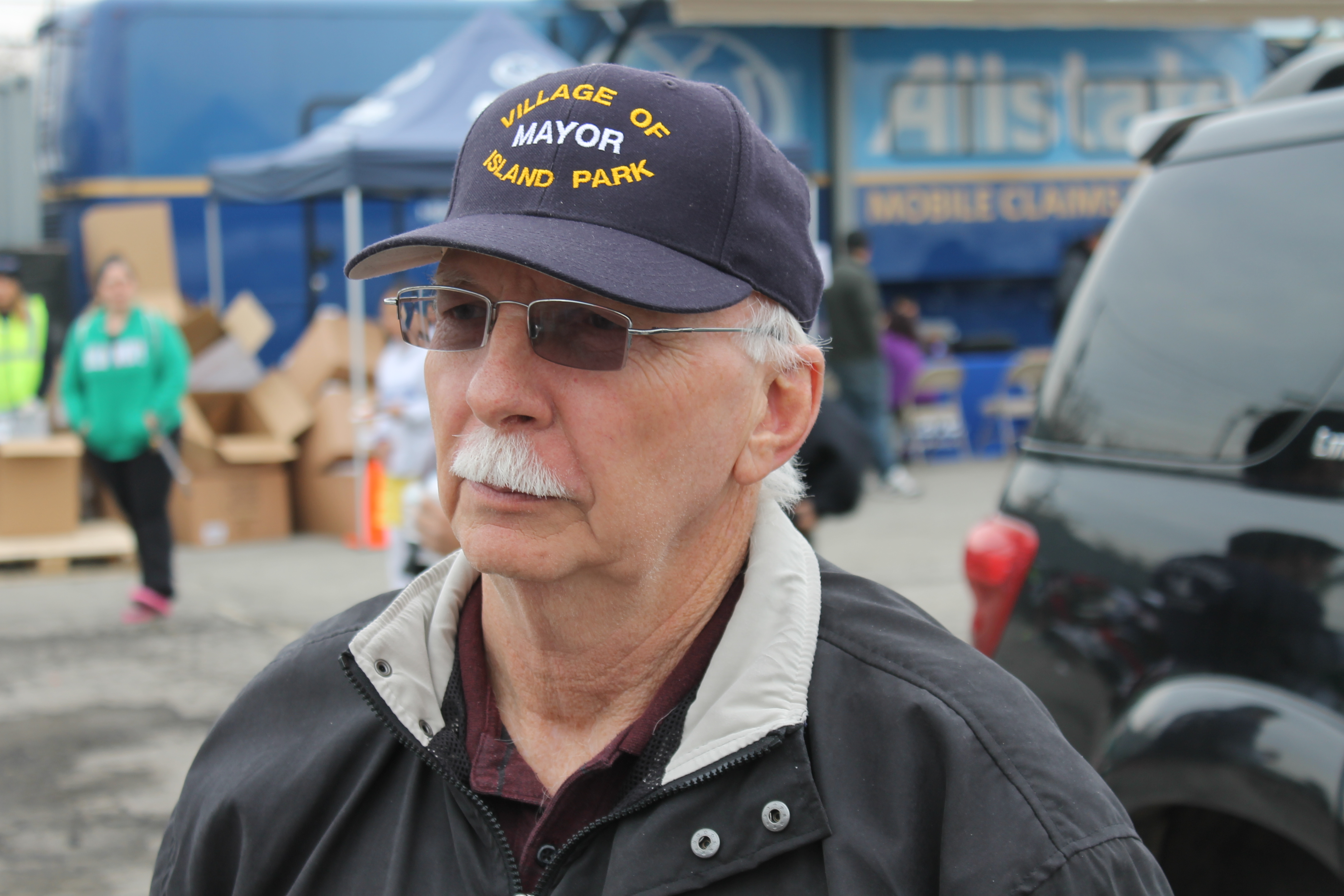

BACK TO THE FUTURE: THE DEC’S LATEST PROPOSAL OUTLINES REMEDIAL EFFORTS FOR WHAT’S CALLED OU3, WHICH INCLUDES PARTS OF THE FORMER 600-ACRE GRUMMAN AEROSPACE COMPLEX IN BETHPAGE THAT IS NOW BETHPAGE COMMUNITY PARK. AN INVESTIGATION DISCOVERED THAT PRIOR TO 1984, CHEMICALS WERE DISCHARGED INTO THE FORMER COMPLEX’S RECHARGE BASINS. (Scott Kearney/Long Island Press)
FULL DISCLOSURE
Wearing a long-brimmed blue sunhat and dark sunglasses, a 63-year-old woman who requested her name not be used for this story but who we’ll call Stella, spent a recent sunny afternoon watering her front lawn on Sycamore Avenue.
Stella moved to this side of Bethpage about 15 years ago with her husband, purchasing the house once lived in by her brother and his wife, who both passed away from cancer.
Her house lies just two doors down from 11th Street, where the Navy went door-to-door testing homes for vapor intrusions of VOCs several years ago and picked up the initial costs for installing air purifying units and sub-slab depressurization systems in nearly a dozen homes.
Stella and her husband, who we’ll call John, say someone, maybe from the DEC, told them theirs was “clear” and that they’d be back to re-test it in November.
“Whether it’s true or not, who knows,” she says. “They told me ‘No.’”
Sycamore runs parallel to the old Grumman Access Road, which the DEC has proposed to excavate in order to remove PCB and chromium fill. Some neighbors on her block have filed a lawsuit, she says. Others have died of cancer, she adds, though she can’t be sure it has anything to do with the current situation with Grumman and the Navy.
Stella says she’s been to every meeting she’s heard about regarding Grumman, the Navy and the plume, including the DEC’s public comment session June 12, but she didn’t know anything about the situation until shortly after moving in, when the nearby Bethpage Community Park she went for walks through was boarded up.
“I would have never bought the house,” Stella says, had she known about the neighborhood’s dirty secret.
The couple wants the plume cleaned up, they say, and they want Grumman or the Navy to pay for it. So do some of LI’s top elected officials.
Nassau County Executive Ed Mangano, who’s been involved in the Navy-Grumman plume issue since the mid-1980s as a civic advocate, then a legislator, tells the Press he stands “shoulder-to-shoulder” with the water districts. U.S. Rep. Peter King says he, too, wants a more aggressive cleanup and the responsible parties to pay for it, not taxpayers.
Local environmentalists share the frustration.
“The bottom line is, it’s a very serious plume that needs to be cleaned up aggressively, and they’re not doing that,” says Adrienne Esposito, executive director of Citizens Campaign for the Environment. Esposito attended a recent information session with the DEC about the plume and found them having “a way too casual attitude” about cleaning it up, she says. “This plume should have never got this far!”
Esposito is also angry that Bethpage Water District has yet to be reimbursed for its protective efforts and like the water districts, oppose the DEC’s wellhead contingency plan in favor of a more aggressive approach of additional extraction wells.
“That is obscene, that is negligent and it’s criminal,” she says of the DEC’s current strategy. “Because what they’re saying is it’s cheaper to contaminate people than it is to protect people.
Dick Amper, executive director of the Pine Barrens Society, has seen it before.
“This has been going on for far too long and it needs to be immediately and aggressively addressed,” he blasts. “Those who say the solution to water protection is simply dilution or attenuation are just making excuses for a problem that’s gotten out of control. The Navy and Grumman made the same excuses at their Calverton facility, and that continues to compromise drinking water and the Peconic River.”
LI environmentalist Richard Schary, president of the Friends of Massapequa Preserve, is also pissed.
“This is a perfect example of dump and run,” he says, “where residents and taxpayers are left holding the bag.”
Caruso, whose family moved to Massapequa in 1921, will continue waging a battle to protect his neighborhood’s water until the plume is stopped. He has to, he says.
“The DEC and the Navy and Grumman, they have, since the beginning, said that this plume would attenuate, it would become dilute,” he says. “It has not become dilute.
“This is coming our way. Stop it.”






